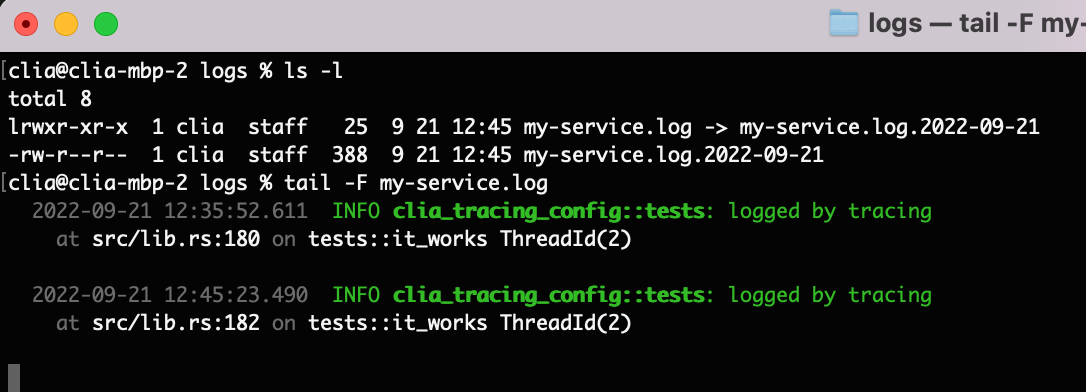Non-official datadog tracing and log correlation for Rust services.
This crate contains the necessary glue to bridge the gap between OpenTelemetry, tracing and Datadog.
Features
datadog-tracing has the following features:
- tracing: utilities for building an OpenTelemetry tracer/layer that sends traces to the Datadog agent
- log correlation: a log formatter that converts the trace ID and span ID to the Datadog native format and injects them into the
dd.trace_idanddd.span_idfields (more information) - propagation: a utility function to set the Datadog propagator as the global propagator
- axum (enabled via the
axumfeature): re-exposing the functionality of axum-tracing-opentelemetry - opionated tracing-subscriber init function, configuring logs and the datadog exporter. It's optional, and you can build your own: the functions it uses are exposed.
Configuration
The lib is configurable via environment variables as following:
| env var | default value | description |
|---|---|---|
| DD_ENABLED | false | Enables the datadog exporter and trace_id/span_id on logs |
| DD_SERVICE | Datadog service name | |
| DD_AGENT_HOST | localhost | Datadog agent host |
| DD_AGENT_PORT | 8126 | Datadog agent port |
| RUST_LOG | info | |
| AXUM_TRACING_LOG_LEVEL | if DD_ENABLED=true, "info", otherwise "off" | |
| OTEL_LOG_LEVEL | debug |
Examples
Further Context and Rationale
Inspiration
This lib was highly inspired on ddtrace crate, which is also a glue between tracing + opentelemetry + datadog. The main difference is that it exportes using the opentelemetry_otlp exporter, and this one uses opentelemetry_datadog, so there is no need to configure your datadog agent to receive traces via OTLP and the default datadog APM works as expected!
Propagation
Two commonly used propagation standards are B3 (OpenZipkin's propagation style) and Jaeger. OpenTelemetry supports both.
Most Datadog SDK's support both B3 and the Datadog native propagation style. For example, the Python datadog-tracing library supports B3 but it needs to be explicitly enabled.
For ease of integration with services written in other languages that use the official Datadog SDK, we opted for sticking with Datadog-style propagation over B3. This is set via the set_global_propagator function which is automatically called when you create the tracer.
Reqwest Propagation
The Python library takes care of propagation of the trace context automatically. Unfortunately, we need to do this manually in Rust.
Arguably, propagation in HTTP requests is the most common need. This crate does not provide any additional support, but we recommend using the reqwest-middleware crate to inject the necessary headers when using reqwest. If you set the global propagator using datadog-tracing, it will work out of the box.
use datadog-tracing::set_global_propagator;
use reqwest_middleware::{ClientBuilder, ClientWithMiddleware};
use reqwest_tracing::TracingMiddleware;
#[tokio::main]
async fn main() -> Result<(), Box<dyn std::error::Error>> {
let (_guard, tracer_shutdown) = datadog_tracing::init()?;
client = get_http_client();
// setup your app and inject the client
}
fn get_http_client() -> ClientWithMiddleware {
ClientBuilder::new(reqwest::Client::new())
.with(TracingMiddleware::default())
.build()
}




